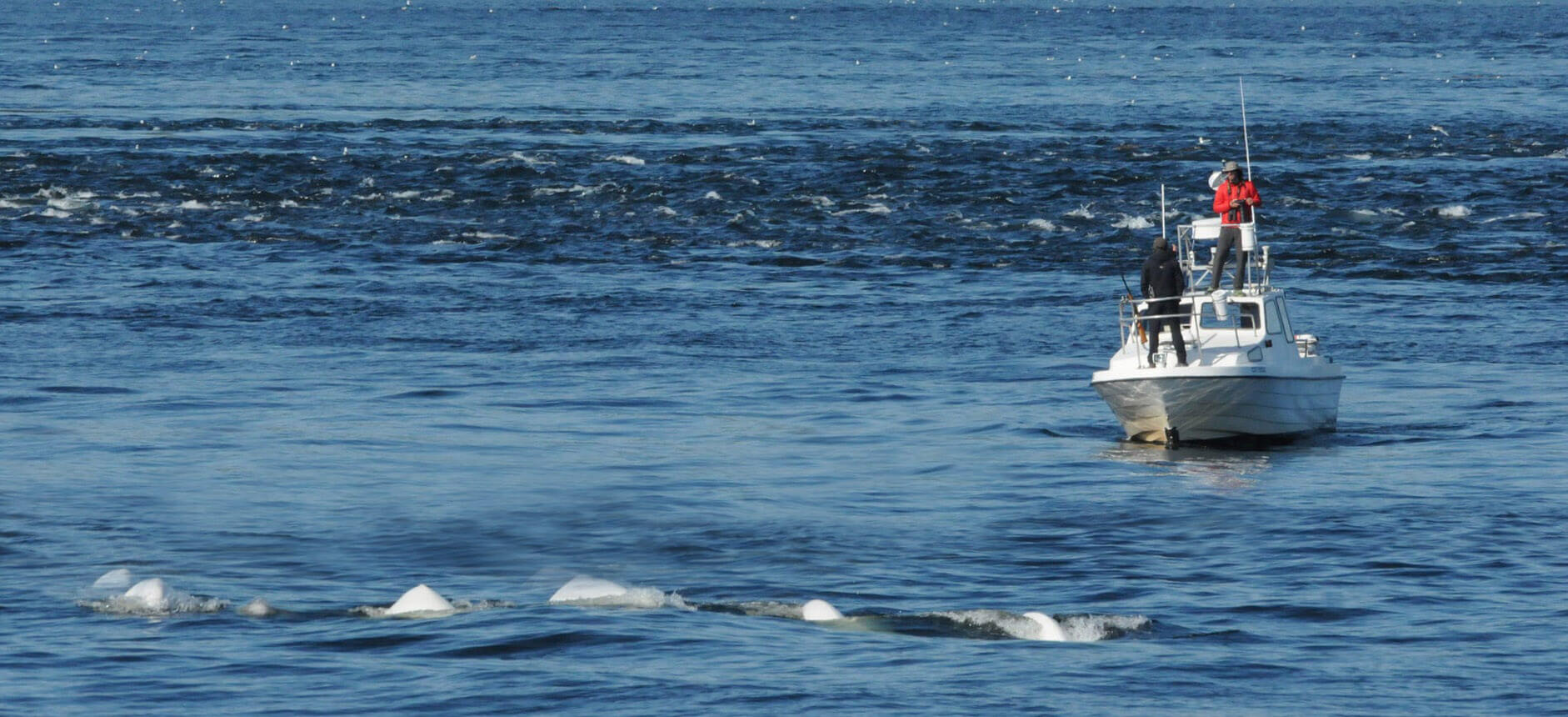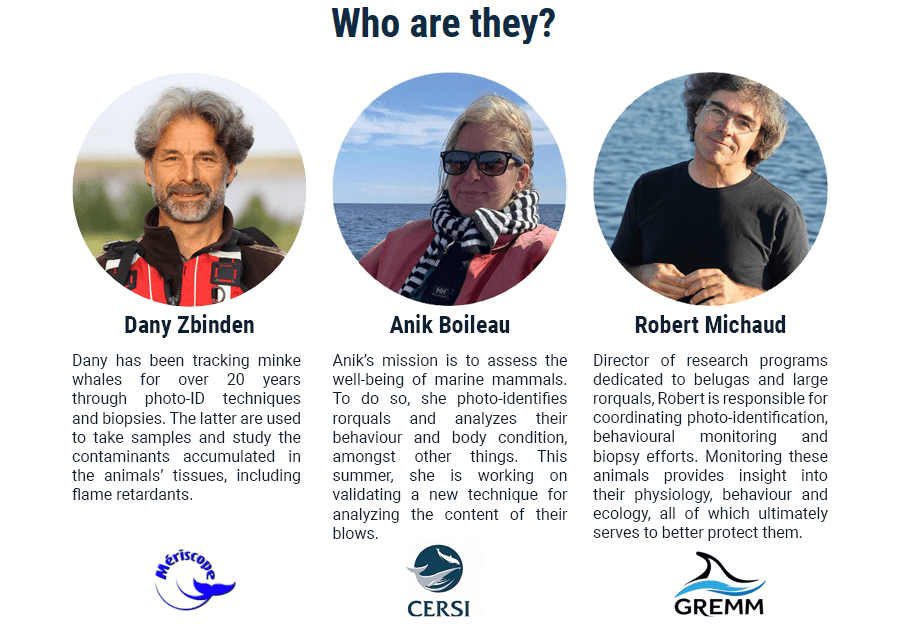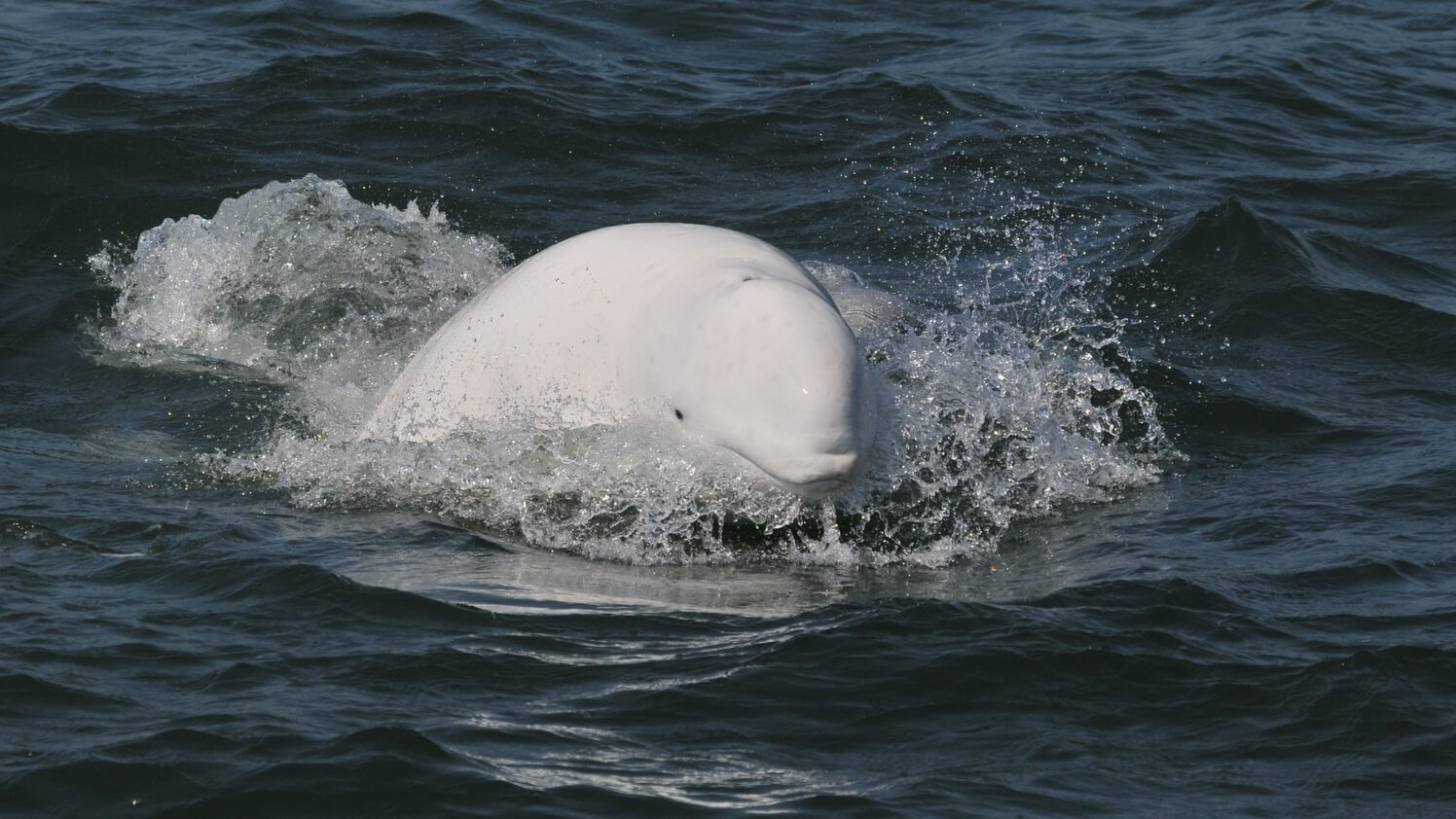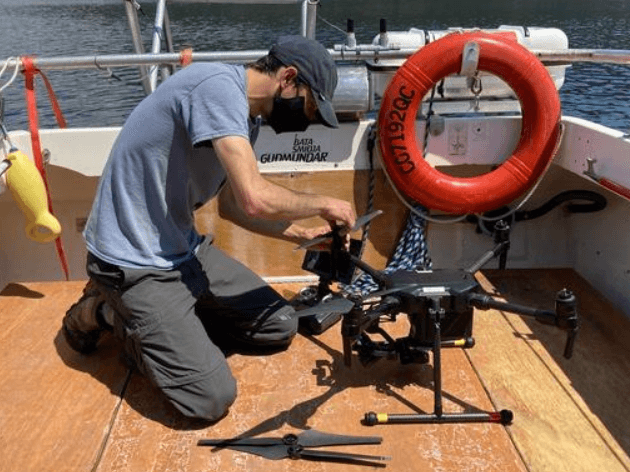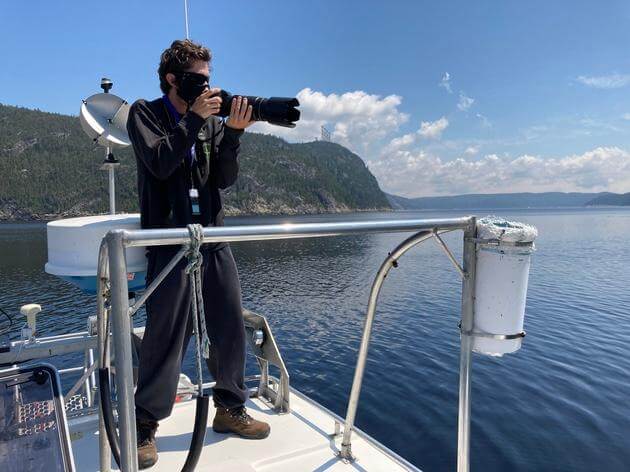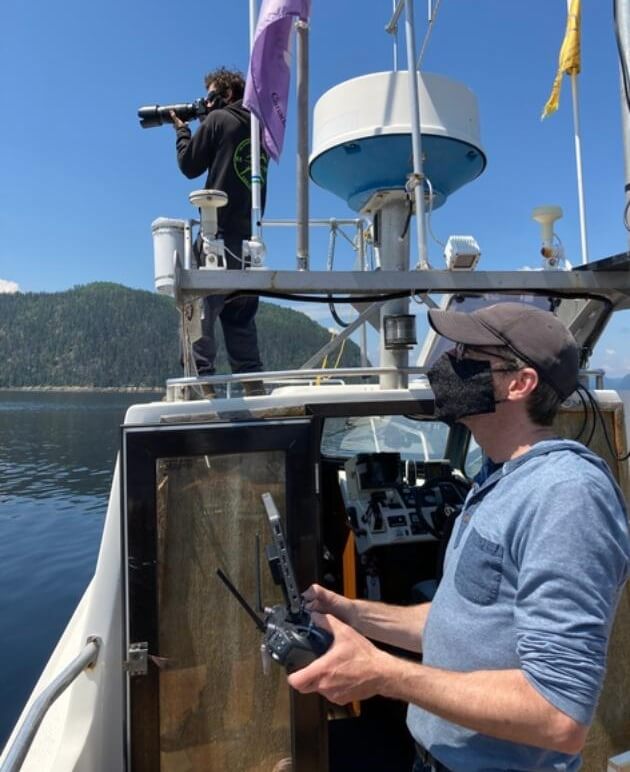Normally, whale experts up and down the St. Lawrence would have begun their research a long time ago. However, the COVID-19 crisis has forced them to reconsider their plans for the summer. Instead of kicking off field work to study marine mammals in early June as planned, most of them stayed in their offices, making arrangements for working remotely and revising their calendars. Nearly every aspect of their work has been affected by the pandemic. To better understand the pitfalls they have had to deal with, the Whales Online team spoke with three researchers: Dany Zbinden, director of Mériscope, Anik Boileau, director of the Sept-Îles Education and Research Centre (CERSI) and Robert Michaud, president of the Group for Research and Education on Marine Mammals (GREMM).
Postponed or modified projects
New public health measures have forced researchers to postpone or scale back some of their research activities. They therefore prioritized those that are part of long-term projects or for which an interruption would create a break in the continuity of data. For example, Dany Zbinden will continue the minke whale monitoring this summer that he has been carrying out for over 20 years. The usual protocol will be followed, but it will be accomplished with a smaller team and will debut in August.
Any projects that require a large team have been postponed. Social distancing on boats is a major issue, but it is far from the only one. “We must also consider that research assistants require accommodations as well as a workstation. There is a lack of physical space at GREMM,” explains Robert Michaud. A number of projects have been shelved until next year. This is notably the case for a study on the acoustic repertoire of belugas being carried out by Ocean Wise in collaboration with GREMM, as well as the development of a tag by Mériscope that doesn’t require a suction cup.
Numerous adjustments
For the GREMM director, the lockdown and arrangements needed for working from home required a substantial effort, which has put a serious wrench in the gears of the organization. Certain field departure dates have also been delayed due to the difficulty of obtaining research permits. At CERSI, researchers have had to deal with an additional three weeks of wait time to obtain approvals from the authorities for data collection. The team will still be able to maintain its calendar, but only if the labs remain open. They have also had to carry out their work without the usual help of numerous volunteers. As if that weren’t enough, slower-than-usual postal services are forcing them to transport their samples themselves from Sept-Îles to Montréal. The result is exhausting days for our small team, but “it’s better than simply cancelling everything,” opines Anik Boileau. As for Mériscope, the team is making the most of the time that had been budgeted for postponed projects by carrying out those that had initially been planned for the next few years, such as revamping the organization’s website.
All researchers have adapted their working techniques to comply with health measures. Everyone must thus respect the regulatory two-metre distance, an extremely difficult task in a tiny boat. And, of course, protective equipment is essential!
Impact on research
Despite the delays, research projects are moving forward. However, since it was impossible in some cases to collect as much data as usual, there will be a significant impact. “We won’t be able to catch up,” laments Dany Zbinden. “It’s a month and a half less in the field and that will be reflected in the data.”
Robert Michaud, who also oversees the Quebec Marine Mammal Emergency Response Network (QMMERN), shares the same concerns. The Network provides data for several research projects, but the lockdown and limited response efforts have resulted in low numbers of carcass samples between April and July.
Financial difficulties
The progress of research projects is highly dependent on the amount of funding obtained. For example, a significant portion of GREMM’s revenue stream is generated by the Marine Mammal Interpretation Centre (CIMM) and its boutique. As the Centre opened its doors two months later than initially scheduled, the research budget has suffered. In order not to jeopardize research activities, the team agreed to a pay cut and a shorter work week. “We are going to enter a critical period. Funding for some of GREMM’s activities is a real concern. We will have to be creative and innovative for the next couple of years,” points out GREMM’s director. At CERSI, several grant applications have been delayed and remain unanswered for the summer. “We have to scrape by with the means we have at our disposal,” says Anik Boileau.
The three researchers evoked the same difficulties. Each of them has had to deal with the challenge of applying safety measures while maintaining the quality of data monitoring. However, they are confident they will be able to continue their projects in the years to come.


